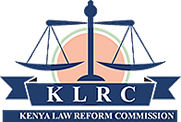Rules for the enforcement of the Bill of Rights
19. Until the Chief Justice makes the rules contemplated by Article 22, the Rules for the enforcement of the fundamental rights and freedoms under section 84(6) of the former Constitution shall continue in force with the alterations, adaptations, qualifications and exceptions as may be necessary to bring them into conformity with Article 22.
The Judicial Service Commission
20. (1) The Judicial Service Commission shall be appointed within sixty days after the effective date and the Commission shall be deemed to be properly constituted under this Constitution despite the fact that there may be a vacancy in its membership because of any of the bodies nominating or electing members have not done so.
(2) Despite subsection (1), the Judicial Service Commission may not perform its functions unless five members have been appointed.
(3) To ensure continuity in the operation of the Judicial Service Commission, despite Article 171 (4), when the Commission is first constituted the following members shall be appointed to serve for three years only--
(a) the Court of Appeal judge appointed under Article 171 (4) (c);
(b) the High Court judge appointed under Article 171 (4) (d);
(c) one of the advocates appointed under Article 171 (4) (f), to be identified by the statutory body responsible for the professional regulation of advocates; and
(d) one of the members appointed by the President under Article 171 (4) (h), to be identified by the President.
(4) Until the Public Service Commission contemplated in Article 233 is established, a person nominated by the Public Service Commission established under section 106 of the former Constitution shall serve on the Judicial Service Commission but, when the new Public Service Commission is established, the person shall cease to be a member of the Judicial Service Commission and the new Public Service Commission shall nominate a person to serve on the Judicial Service Commission.
Establishment of the Supreme Court
21. (1) The establishment of, and appointment of judges to, the Supreme Court shall be completed within one year after the effective date.
(2) Until the Supreme Court is established, the Court of Appeal shall have jurisdiction over matters assigned to the Supreme Court.
Judicial proceedings and pending matters
22. All judicial proceedings pending before any court shall continue to be heard and shall be determined by the same court or a corresponding court established under this Constitution or as directed by the Chief Justice or the Registrar of the High Court.
Judges
23. (1) Within one year after the effective date, Parliament shall enact legislation, which shall operate despite Article 160, 167 and 168, establishing mechanisms and procedures for vetting, within a timeframe to be determined in the legislation, the suitability of all judges and magistrates who were in office on the effective date to continue to serve in accordance with the values and principles set out in Articles 10 and 159.
(2) A removal, or a process leading to the removal, of a judge, from office by virtue of the operation of legislation contemplated under subsection (1) shall not be subject to question in, or review by, any court.
Chief Justice
24. (1) The Chief Justice in office immediately before the effective date shall, within six months after the effective date, vacate office and may choose either--
(a) to retire from the judiciary; or
(b) subject to the process of vetting under section 23, to continue to serve on the Court of Appeal.
(2) A new Chief Justice shall be appointed by the President, subject to the National Accord and Reconciliation Act, and after consultation with the Prime Minister and with the approval of the National Assembly.
(3) Subsection (2) also applies if there are further vacancies in the office of Chief Justice before the first general elections under this Constitution.
